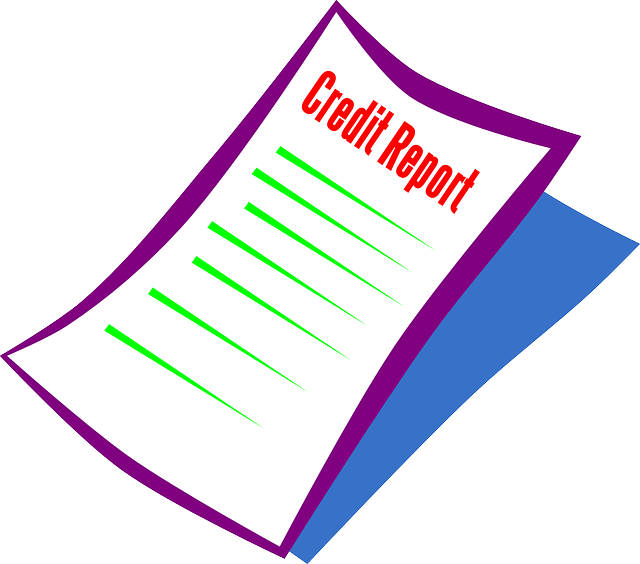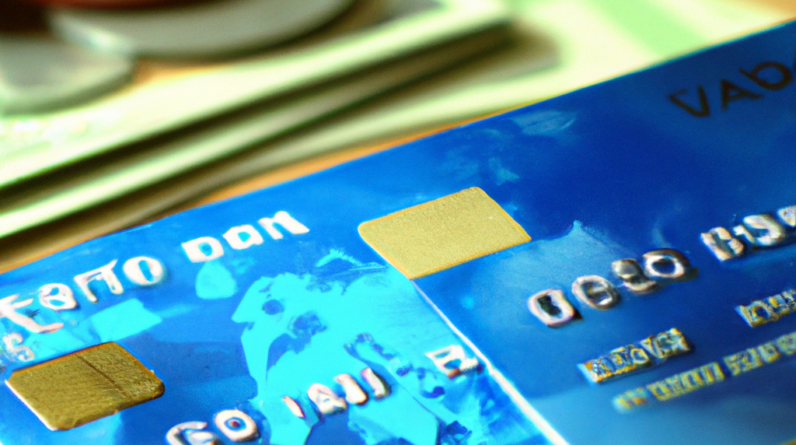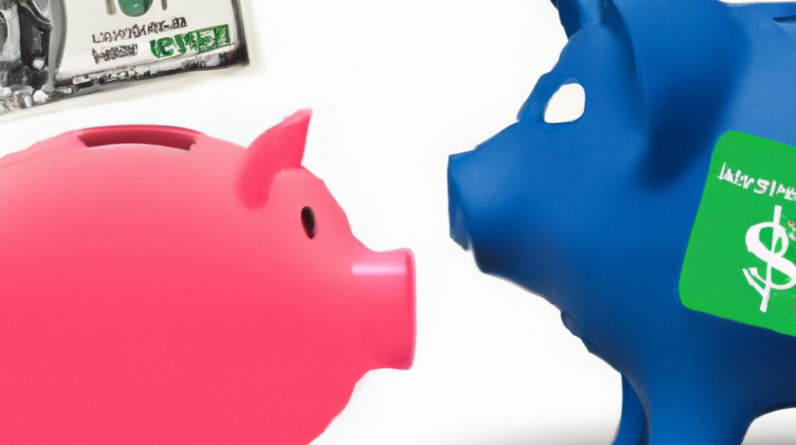
Did you ever wonder how your credit score is calculated? Well, it’s based on a few important factors like your payment history and the amount you owe on your credit cards and loans. Your credit score is not just important when applying for loans or credit cards, but it also affects other aspects of your life like insurance premiums and rental applications. But don’t worry, in this article, we’ll dive deeper into how you can improve your credit score and why it matters.
One of the key ways to improve your credit score is by paying your bills on time. Late payments can significantly lower your credit score, so it’s crucial to stay on top of due dates. Additionally, keeping your credit card balances low can also have a positive impact on your score. The lower your balances, the better it reflects on your financial responsibility.
Now, when it comes to credit scores, you might have heard about the three major credit reporting agencies: Equifax, Experian, and TransUnion. These agencies collect your credit information and calculate your credit score. The most commonly used scoring system is the FICO® Score, which ranges from 300 to 850. A high credit score is not just about bragging rights, it plays a big role in qualifying for desired loans, credit cards, and other financial products.
So, if you want to learn more about how to improve your credit score, stick around for the rest of this article. We’ll explore the other factors that affect your credit score and discuss some practical tips on how you can boost it.
How to Improve Your Credit Score
Your credit score is an important number that lenders use to evaluate your creditworthiness. It is calculated based on factors such as your payment history and the amount of debt you owe on credit cards and loans. A good credit score can open doors to better financial opportunities, such as lower interest rates on loans and credit cards, while a poor credit score can limit your options. In this article, we will explore how you can improve your credit score and take control of your financial future.
Understanding Credit Scores
What is a Credit Score?
A credit score is a three-digit number that represents your creditworthiness. It is calculated by credit reporting agencies using mathematical algorithms that analyze your credit history and payment patterns. Your credit score provides lenders with an assessment of the risk involved in lending money to you.
Factors That Affect Your Credit Score
Several factors contribute to the calculation of your credit score. The most important factors include:
- Payment History: Your payment history accounts for the largest portion of your credit score. Lenders want to see that you consistently make your payments on time and in full.
- Amounts Owed: The amount of debt you owe, relative to your credit limits, impacts your credit score. High credit card balances can negatively affect your credit score.
- Length of Credit History: Your credit score considers the length of time you have held credit accounts. A longer credit history can demonstrate your ability to manage credit responsibly.
- New Credit Applications: Applying for multiple new credit accounts within a short time period can negatively impact your credit score. It may indicate financial instability or a sudden need for credit.
- Types of Credit Used: A mix of credit types, such as credit cards, loans, and mortgages, can positively impact your credit score, as it shows you can manage different types of credit responsibly.
Calculating Credit Scores
Credit Reporting Agencies
Credit reporting agencies, such as Equifax, Experian, and TransUnion, collect and maintain information on your credit history. They use this information to calculate your credit scores. It’s important to check your credit reports from each agency regularly to ensure that the information they have is accurate and up to date.
The FICO® Score
The most commonly used credit scoring system is the FICO® Score. This score ranges from 300 to 850, with higher scores indicating better creditworthiness. Lenders use the FICO® Score to assess the risk of lending you money. It’s worth noting that different lenders may use different scoring models, so your score may vary slightly between lenders.
Score Ranges
Credit scores are typically categorized into different ranges. While these ranges can vary slightly depending on the scoring model used, they generally fall into the following categories:
- Excellent: 800 – 850
- Very Good: 740 – 799
- Good: 670 – 739
- Fair: 580 – 669
- Poor: 300 – 579

Importance of Paying Bills on Time
Impact of Late Payments on Credit Scores
Paying your bills on time is crucial for maintaining a good credit score. Late payments can have a significant negative impact on your credit score, as they indicate a lack of responsibility and financial instability. Even a single late payment can lower your credit score and stay on your credit report for several years.
Tips for Paying Bills on Time
To ensure timely bill payments, consider the following tips:
- Set Up Automatic Payments: Many lenders and service providers offer automatic payment options. By enrolling in automatic payments, your bills will be paid on time directly from your bank account.
- Create a Budget: A budget helps you stay organized and ensures that you allocate enough funds to cover your financial obligations.
- Set Reminders: Use reminders on your phone or computer to alert you of upcoming bill due dates.
- Consider Payment Apps: Payment apps can help you manage and track your bills, making it easier to stay on top of your financial obligations.
Managing Credit Card Balances
Effects of High Credit Card Balances
High credit card balances can negatively impact your credit score. When your credit card balances are close to your credit limit, it can suggest that you are relying too heavily on credit, which can be seen as a financial risk.
Strategies to Keep Credit Card Balances Low
To manage your credit card balances effectively, consider the following strategies:
- Pay More Than the Minimum: Whenever possible, pay more than the minimum amount due on your credit card. This will help you reduce your balance faster and save on interest charges.
- Use Credit Sparingly: Avoid using your credit cards unnecessarily. Instead, use cash or debit cards for everyday purchases.
- Pay Off Balances in Full Each Month: Paying off your credit card balances in full each month ensures that you are not carrying debt and allows you to avoid paying interest.

Checking Your Credit Report
Why It’s Important to Regularly Check Your Credit Report
Regularly checking your credit report is essential to maintaining a good credit score. Your credit report contains information that lenders use to determine your creditworthiness. By reviewing your credit report, you can identify any errors or inaccuracies that could be negatively impacting your credit score.
How to Obtain Your Credit Report for Free
Under federal law, you are entitled to a free credit report from each of the three major credit reporting agencies once every 12 months. To obtain your free credit reports, visit AnnualCreditReport.com, the only authorized website for free credit reports.
Improving Your Credit Score
Paying Bills on Time
As mentioned earlier, paying your bills on time is crucial for improving your credit score. Consistently making on-time payments demonstrates financial responsibility and can boost your credit score over time.
Reducing Credit Card Balances
Lowering your credit card balances is another effective strategy for improving your credit score. Aim to keep your credit card utilization ratio (the amount of available credit you use) below 30%. By paying down your balances, you can decrease this ratio and positively impact your credit score.
Building a Positive Credit History
Building a positive credit history takes time and responsible credit management. To establish a positive credit history, consider the following:
- Open a Credit Card: If you don’t already have a credit card, consider applying for one. Start with a low credit limit and use it responsibly.
- Make Small Purchases: Use your credit card for small purchases and pay off the balance in full each month.
- Become an Authorized User: If someone you trust has a credit card with a good payment history, ask them to add you as an authorized user. This can help you establish credit history.

Monitoring and Protecting Your Credit Score
Tips for Monitoring Your Credit Score
Monitoring your credit score regularly allows you to stay informed about your creditworthiness and catch any potential issues early. Consider the following tips:
- Use Credit Monitoring Services: Many websites and apps offer credit monitoring services that alert you of any changes to your credit score or credit report.
- Review Your Credit Report: Check your credit report for any errors or fraudulent activity. If you spot any inaccuracies, contact the credit reporting agency to have them corrected.
Steps to Protect Your Credit from Identity Theft
Identity theft can have a devastating impact on your credit score. To protect yourself, take the following steps:
- Monitor Your Accounts: Regularly review your bank and credit card statements for any unauthorized transactions.
- Be Cautious of Scams: Be wary of phishing emails, phone calls, or text messages asking for personal or financial information.
- Protect Your Personal Information: Safeguard your Social Security number, credit card numbers, and other sensitive information. Shred documents containing personal information before disposing of them.
Benefits of a Good Credit Score
Qualifying for Desired Loans and Credit Cards
A good credit score opens doors to better loan and credit card options. Lenders prefer borrowers with higher credit scores, as they are seen as less risky and more likely to repay their debts.
Lower Insurance Premiums
Insurance companies often use credit scores as a factor when determining insurance premiums. A good credit score can result in lower insurance rates, saving you money in the long run.
Positive Impact on Rental Applications
Landlords and property management companies may request your credit score when evaluating rental applications. A high credit score demonstrates financial responsibility, which can increase your chances of securing a desirable rental property.

Conclusion
Understanding and improving your credit score is essential for your financial well-being and accessing desired financial products. By paying your bills on time, managing your credit card balances, and building a positive credit history, you can take control of your credit score and open doors to better financial opportunities. Regularly monitoring your credit score and protecting your information from identity theft are additional steps you can take to ensure your credit remains strong. Remember, improving your credit score is a journey that requires patience and discipline, but the long-term benefits are well worth the effort.







